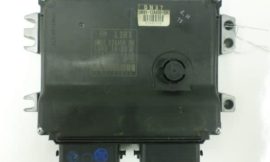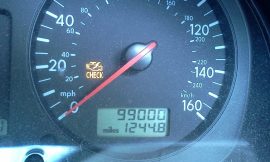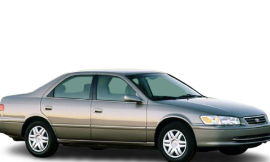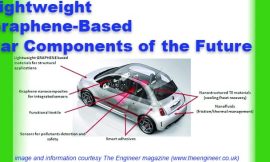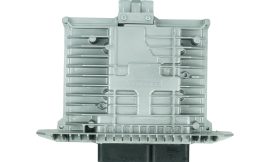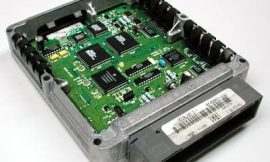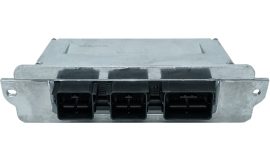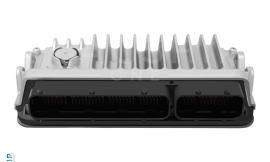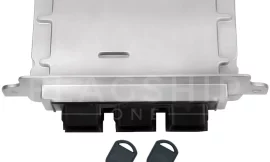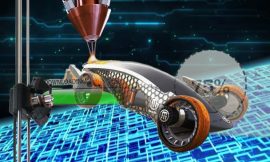Last updated on November 4th, 2024 at 11:07 am
The Acura Legend stands as a testament to the fusion of luxury and performance. This iconic vehicle boasts a powerful V6 engine, offering substantial horsepower for a smooth and vigorous driving experience. Enhanced with features like anti-lock brakes, leather seats, electric sunroof, and dual-zone climate control, the Acura Legend encapsulates comfort and convenience.
At the heart of these features lies the Engine Control Module (ECM), also known as the Engine Control Unit (ECU). The ECU is crucial in optimizing the vehicle’s performance and fuel efficiency. It monitors and adjusts critical parameters like air-fuel mixture, ignition timing, and idle speed, thus ensuring seamless operation of the Acura Legend’s impressive features. Through real-time adjustments, the ECU contributes significantly to the overall driving experience, making each journey in the Acura Legend a joy to behold.
The Role of the ECU in the Legend
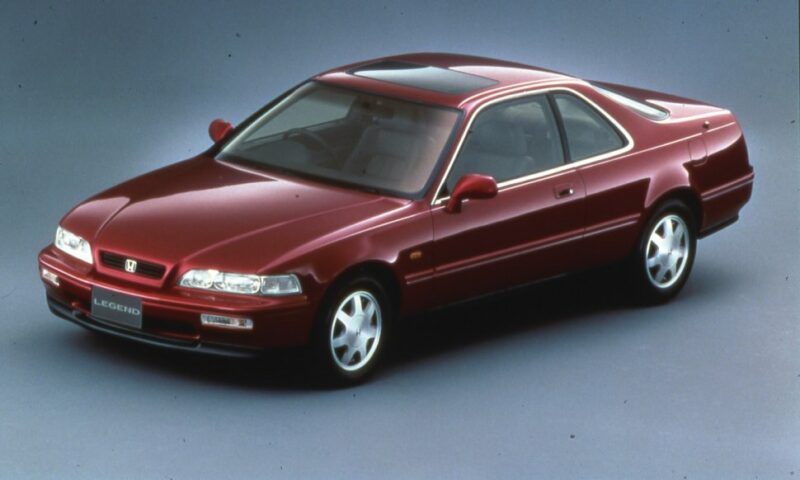
The ECU in the Acura Legend performs a remarkable balancing act, coordinating with multiple systems within the vehicle. On one hand, it communicates with the Powertrain Control Module (PCM) to manage the engine’s power output, fine-tuning it based on the driving conditions and driver’s inputs. This leads to an optimal mix of speed, power, and fuel efficiency.
On the other hand, the ECU interacts with the vehicle’s safety systems, such as the anti-lock braking system (ABS). By interpreting the data from the ABS, the ECU can adjust the engine output to aid in maintaining the stability and control of the vehicle. This is especially crucial during instances of sudden braking or driving on slippery surfaces, ensuring the driver’s safety.
Moreover, the ECU works closely with the fuel injection system. It regulates the fuel injector’s output, determining the amount of fuel delivered to the engine based on the air intake. This not only optimizes fuel consumption but also helps maintain the engine’s health by preventing a lean or rich mixture that could potentially damage the engine.
So, the ECU is more than just a controller; it’s the conductor of the Acura Legend’s symphony, guiding each section to work in harmony for a smooth and efficient performance.
Benefits of a Quality ECU
A top-tier Engine Control Unit (ECU) offers numerous benefits that contribute to an enhanced driving experience:
- Optimized Fuel Efficiency: A quality ECU manages the air-fuel mixture and ignition timing, maximizing fuel efficiency and minimizing emissions.
- Improved Performance: By continuously monitoring and adjusting engine parameters, a high-grade ECU ensures optimal engine performance, resulting in smoother acceleration and better power output.
- Enhanced Safety: The ECU’s interaction with the ABS and other safety systems helps maintain vehicle stability and control, thereby enhancing driver safety.
- Increased Lifespan: By regulating engine conditions and preventing scenarios that could potentially cause engine damage, a quality ECU contributes to extending the lifespan of the vehicle.
- Environmentally Friendly: With precise management of fuel consumption and emissions, a top-notch ECU also plays a role in reducing the vehicle’s environmental impact.
- Cost Savings: By optimizing fuel efficiency and extending the vehicle’s lifespan, a quality ECU can lead to significant cost savings in the long run.

Long-Term Impact
Investing in a quality ECU can have a long-term impact on the lifespan and resale value of your Acura Legend. Over time, a top-tier ECU can effectively manage the wear and tear of the engine. By regulating engine conditions and preventing over-fueling or under-fueling scenarios that could potentially cause engine damage, the ECU contributes to extending the lifespan of the vehicle.
Additionally, an optimal performing engine increases the resale value of the Acura Legend. Prospective buyers often prioritize vehicles with well-maintained engines and systems, and the presence of a high-grade ECU signals meticulous maintenance and top-tier performance to potential buyers. In essence, a quality ECU not only provides an immediate pay-off in terms of performance and fuel efficiency, but it also contributes to preserving the value of your Acura Legend in the long run.
In conclusion, a quality ECU is an indispensable component for your Acura Legend. With its ability to optimize fuel efficiency, enhance performance, and ensure safety, a top-notch ECU significantly enriches your driving experience. The ECU’s role in regulating engine conditions and preventing damage extends the lifespan of your vehicle, ultimately leading to significant long-term cost savings. Moreover, an efficiently running engine with controlled emissions contributes positively to the environment. Investing in a quality ECU, such as those provided by Flagship One, Inc., not only ensures optimal functioning of your Acura Legend, but also supports its resale value, making it a wise investment for every Legend owner.
DIAGNOSTIC TROUBLE CODES THAT RELATES TO THE PCM
Diagnostic Trouble Codes (DTCs) are codes that are stored by a vehicle’s on-board diagnostic (OBD) system when it detects a fault with the vehicle’s powertrain system.
P0100: Mass or Volume Air Flow Circuit Malfunction
P0101: Mass or Volume Air Flow Circuit Range/Performance
P0102: Mass or Volume Air Flow Circuit Low Input
P0103: Mass or Volume Air Flow Circuit High Input
P0110: Intake Air Temperature Circuit Malfunction
P0113: Intake Air Temperature Sensor 1 Circuit High
P0172: System Too Rich (Bank 1)
P0120: Throttle/Pedal Position Sensor/Switch “A” Circuit Malfunction
P0130: Oxygen Sensor Circuit Malfunction (Bank 1, Sensor 1)
P0131: Oxygen Sensor Circuit Range/Performance (Bank 1, Sensor 1)
P0132: Oxygen Sensor Circuit High Voltage (Bank 1, Sensor 1)
P0133: Oxygen Sensor Circuit Slow Response (Bank 1, Sensor 1)
P0134: Oxygen Sensor Circuit Intermittent (Bank 1, Sensor 1)
P0135: Oxygen Sensor Circuit Malfunction (Bank 1, Sensor 2)
P0136: Oxygen Sensor Circuit Range/Performance (Bank 1, Sensor 2)
P0137: Oxygen Sensor Circuit Low Voltage (Bank 1, Sensor 2)
P0138: Oxygen Sensor Circuit High Voltage (Bank 1, Sensor 2)
P0139: Oxygen Sensor Circuit Intermittent (Bank 1, Sensor 2)
P0140: Oxygen Sensor Circuit Malfunction (Bank 2, Sensor 1)
P0141: Oxygen Sensor Circuit Range/Performance (Bank 2, Sensor 1)
P0142: Oxygen Sensor Circuit Low Voltage (Bank 2, Sensor 1)
P0143: Oxygen Sensor Circuit High Voltage (Bank 2, Sensor 1)
P0144: Oxygen Sensor Circuit Intermittent (Bank 2, Sensor 1)
Here is a list of some diagnostic trouble codes (DTCs) that begin with the letter “U” and could potentially indicate a fault with the powertrain control module (PCM) in a vehicle:
U0100: Lost Communication with Engine Control Module/Powertrain Control Module
U0101: Lost Communication with Transmission Control Module
U0102: Lost Communication with Transfer Case Control Module
U0103: Lost Communication with Throttle Actuator Control Motor Circuit
U0104: Lost Communication with Throttle Actuator Control Motor Circuit Range/Performance
U0105: Lost Communication with Throttle Actuator Control Motor Circuit Low
U0106: Lost Communication with Throttle Actuator Control Motor Circuit High
U0107: Lost Communication with Throttle Actuator Control Motor Circuit Intermittent
U0108: Lost Communication with Throttle Actuator Control Motor Circuit Open
U0109: Lost Communication with Throttle Actuator Control Motor Circuit Short to Ground
U0110: Lost Communication with Throttle Actuator Control Motor Circuit Short to Battery
U0111: Lost Communication with Throttle Actuator Control Motor Circuit Short to Power
U0112: Lost Communication with Throttle Actuator Control Motor Circuit Short to Ground
U0113: Lost Communication with Throttle Actuator Control Motor Circuit Short to Battery
U0114: Lost Communication with Throttle Actuator Control Motor Circuit Short to Power
U0115: Lost Communication with Throttle Actuator Control Motor Circuit Failure
U0116: Lost Communication with Throttle Actuator Control Motor Circuit Range/Performance
Note: These codes are just a small sample and there are many other DTC codes that could potentially indicate a fault with the PCM. Additionally, the specific codes that are relevant will depend on the make and model of the vehicle. It is important to consult the vehicle’s service manual or a professional mechanic for more information about interpreting DTC codes.



